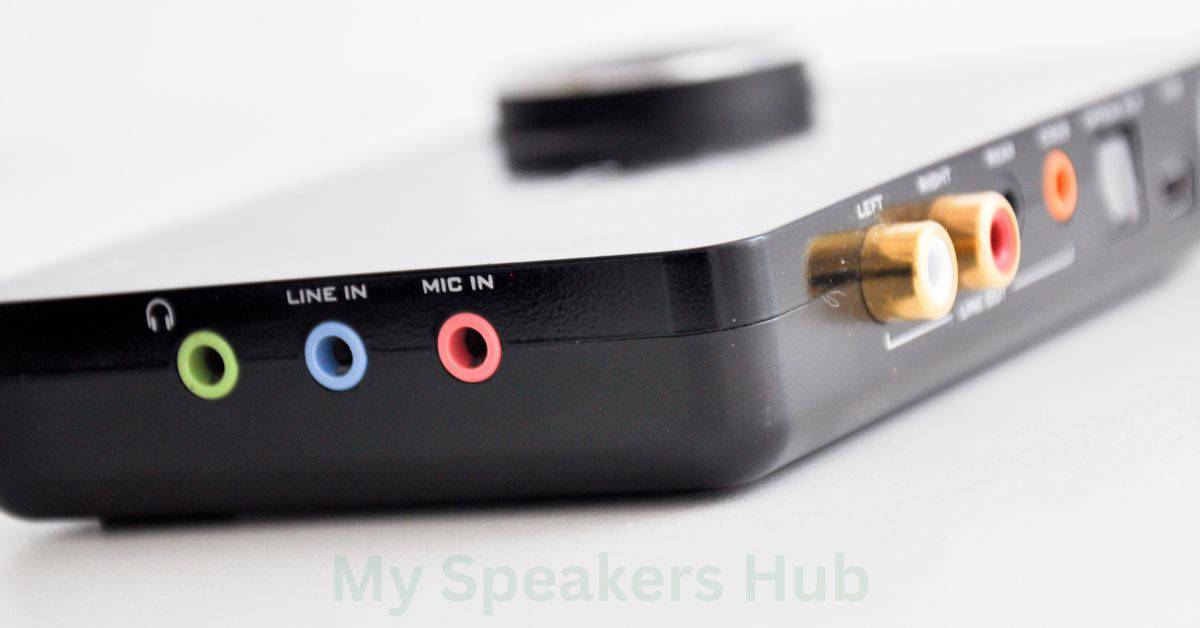A sound card is an important piece of computer hardware that allows a user to input and output audio signals. While many computers come with sound cards built-in, some do not, and they must be purchased separately. In addition, sound cards can be upgraded to improve audio quality. For example, a user might add a sound card to their computer to improve the quality of music playback or to add support for 5.1 or 7.1 surround sound.
Benefits of Sound Cards for Speakers
There are a few benefits of sound cards for speakers. The first is that they can help to improve the quality of sound that is emitted from the speakers. This is because sound cards can help to process and amplify the sound that is being outputted. Additionally, sound cards can also help to add special effects to the sound, which can make it more interesting to listen to. Finally, sound cards can also help to protect the speakers from damage. This is because sound cards can help to regulate the amount of power that is being sent to the speakers, which can prevent them from being overworked and damaged.
Different Types of Sound Cards
Sound cards are computer expansion cards that allow a computer to output or input audio. Most sound cards come with software that allows the user to configure the card’s settings. Some sound cards can be used to record sound, while others are designed for use with music composition software. Some sound cards are also able to process 3D audio.
The most common type of sound card is an integrated sound card. This type of sound card is built into the motherboard of the computer. Many motherboards come with integrated sound cards that are capable of outputting stereo sound. Some integrated sound cards are also able to process 3D audio.
Another type of sound card is a PCI sound card. PCI sound cards are expansion cards that plug into a PCI slot on the motherboard. PCI sound cards are typically more expensive than integrated sound cards and offer better sound quality.
A third type of sound card is a USB sound card. USB sound cards are external devices that plug into a USB port. USB sound cards are typically more expensive than PCI sound cards, but they offer better sound quality.
Sound cards are an important part of any computer that is used for gaming, audio production, or video production. They allow the computer to output or input audio. Sound cards come in a variety of different types, such as integrated sound cards, PCI sound cards, and USB sound cards.
Various Features of Sound Cards
Sound cards are computer components that generate and output sound. Most sound cards include a digital-to-analog converter (DAC), which converts digital audio data into an analog signal that can be amplified and played through speakers. Some sound cards also include an analog-to-digital converter (ADC), which can be used to record analog audio signals, such as from a microphone.
Some of the features that are common among sound cards are:
- Sampling rate: This is the number of times per second that the sound card converts analog audio signals into digital data. The higher the sampling rate, the better the quality of the resulting digital audio.
- Bit depth: This is the number of bits of data that are captured for each sample. The higher the bit depth, the better the quality of the resulting digital audio.
- Frequency response: This is the range of frequencies that the sound card can reproduce. The wider the frequency response, the better the quality of the resulting sound.
- Signal-to-noise ratio: This is the ratio of the level of the audio signal to the level of background noise. The higher the signal-to-noise ratio, the better the quality of the resulting sound.
Pros and Cons of Sound Cards
Sound cards are one of the most important parts of a computer. They are responsible for converting digital data into audio signals that can be played back through speakers or headphones. Sound cards can be used for a variety of purposes, including playing music, recording audio, and watching movies.
There are a few different types of sound cards available on the market, each with its own set of pros and cons. Internal sound cards are the most common type of sound card. They are typically less expensive than external sound cards and are easy to install. However, internal sound cards can take up valuable space inside a computer case and may not offer as many features as an external sound card.
External sound cards are less common, but they offer a number of advantages over internal sound cards. External sound cards are typically more expensive, but they offer a wider range of features and better sound quality. They are also easy to install and can be used with a laptop or desktop computer.
Choose the Right Sound Card
There are a few things to consider when choosing a sound card. The first is what you will be using the card for. You are a gamer, you will want a card that can provide high-quality audio for gaming. If you are a musician, you will want a card that can provide high-quality audio for recording and playback. If you are just looking for general audio quality, you will want a card that can provide good quality for both music and gaming.
The second thing to consider is what connections you need. If you are just using your computer for general use, you will probably only need a 3.5mm jack. However, if you are looking to connect to external speakers or other audio devices, you will need a card with more than one 3.5mm jack.

The third thing to consider is what features you need. Some sound cards come with features like surround sound, Dolby Digital, or THX certification. If you are looking for a specific feature, make sure the card you are considering has it.
The fourth thing to consider is price. Sound cards can range in price from around $20 to $200. If you are only looking for general audio quality, you can probably find a card in the $20-$50 range that will suit your needs. If you are looking for high-end audio quality, you will need to spend more.
No matter what your needs are, there is a sound card out there that will suit you. Take the time to consider what you need and you will be able to find the perfect sound card for your needs.
Frequently Asked Questions [FAQs]
What is a sound card?
A sound card is a piece of computer hardware that allows a computer to output sound. A sound card typically has a digital-to-analog converter (DAC), which converts digital data into an analog audio signal, and an amplifier to amplify the signal.
Do I need a sound card for my speakers?
No, you do not need a sound card for your speakers. Speakers typically have their own internal amplifier, so all you need to do is connect the speakers to a power source and an audio source (e.g., a computer or an MP3 player).
Are there any downsides to having a sound card?
The main downside to having a sound card is the cost. Sound cards can range in price from $20 to $200 or more. Additionally, sound cards can take up valuable space inside a computer case.
Can I use my computer’s built-in sound hardware instead of a sound card?
Yes, you can use your computer’s built-in sound hardware instead of a sound card. However, you may not be able to take advantage of all the features of a sound card, such as support for multiple audio channels or special effects. Additionally, the sound quality from your computer’s built-in sound hardware may not be as good as the sound quality from a sound card.
Do I need to install a sound card in my computer?
No, you do not need to install a sound card in your computer. Sound cards are typically installed in a computer’s expansion slots. However, some sound cards are designed to be plugged into a USB port.
Can I use multiple sound cards in my computer?
Yes, you can use multiple sound cards in your computer. However, you may need to install special drivers to use more than one sound card. Additionally, using multiple sound cards can increase the complexity of your computer’s audio setup.
What should I do if I’m not sure if I need a sound card?
If you’re not sure if you need a sound card, we recommend that you consult with a computer technician or an audio specialist. They can help you determine if a sound card is right for your needs.
Conclusion
If you want to use speakers with your computer, you don’t necessarily need a sound card. Many motherboards have built-in audio that will work just fine with speakers. However, if you want the best audio quality possible, you’ll want to invest in a sound card.


